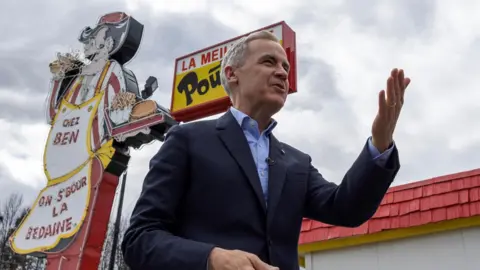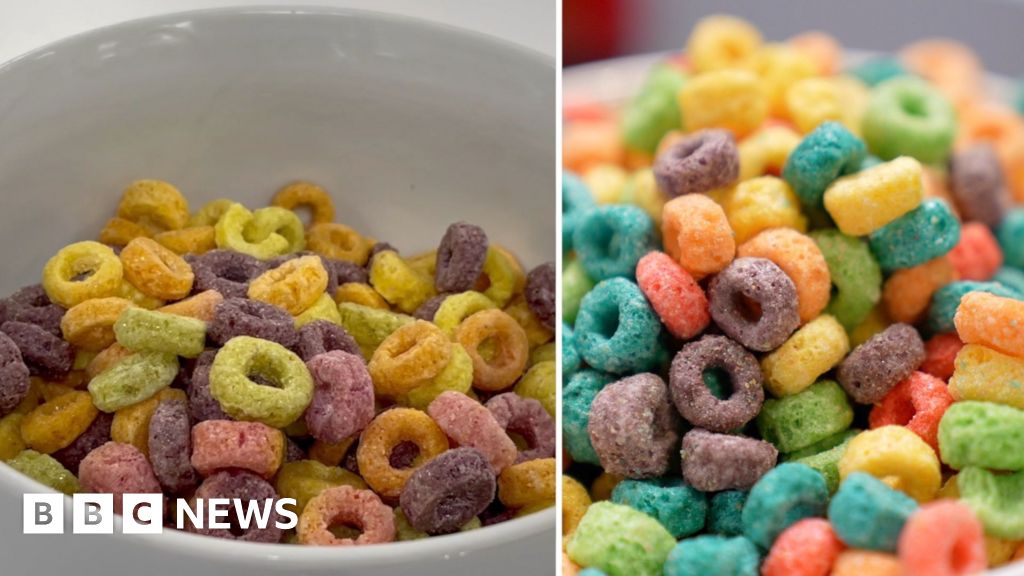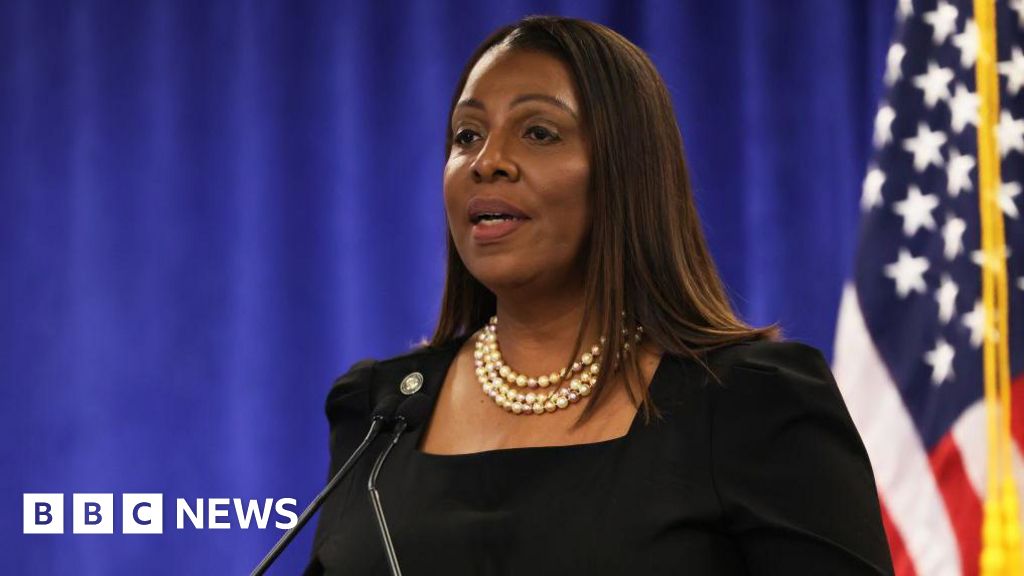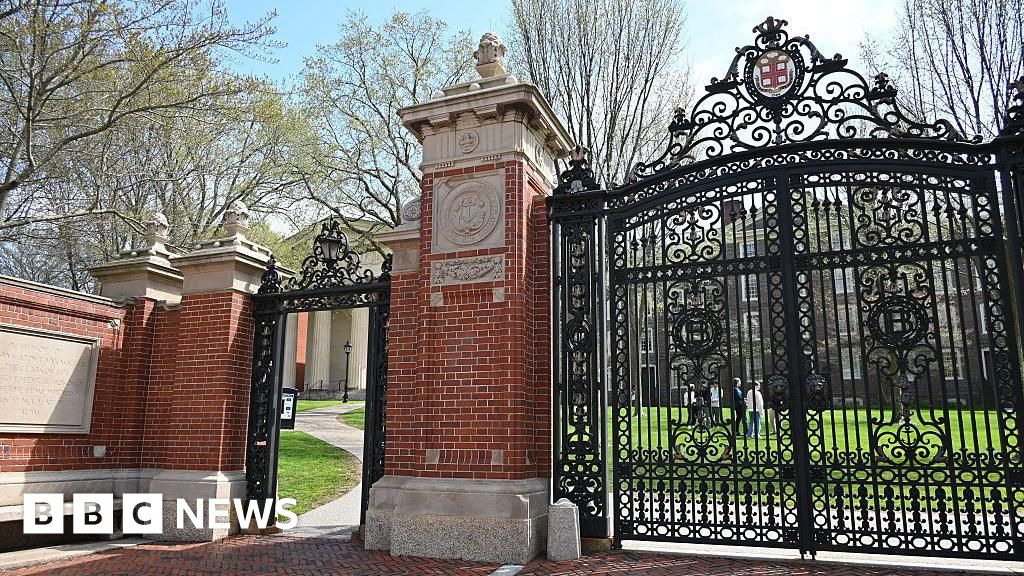ARTICLE AD BOX
Jessica Murphy
BBC News
Reporting fromMontreal

 Reuters
Reuters
Mark Carney's far-from-fluent French has not dented the Liberal leader's appeal in Quebec
In Quebec, the issue of independence from Canada has long simmered. But faced with US tariffs and President Donald Trump's comments about making Canada the 51st US state, many voters are now seeking unity.
Suzanne Dumont knows who she will vote for in Canada's election, though it's a decision made "not from my heart, it's from my head".
The 70-year-old from Quebec City considers herself a sovereigntist, but hopes when Canadians go to the polls on Monday they'll elect a majority government to take on Trump.
The Bloc Québécois, a federal party that supports independence and only runs candidates in the predominantly French-speaking province, can't deliver on that, she says.
Supporting the Conservatives is "unthinkable" to Ms Dumont, so this time she will be voting Liberal.
In Montreal, Louis Plouffe is picking up groceries at the city's Jean-Talon market.
He tells the BBC that he thinks the Bloc "defends Quebec's interests well" as an opposition party in Parliament. Still, "it's not being in power", the 65-year-old says, and he wants a government with a strong mandate "ready for the wave that's coming" from the US.
And while Mr Plouffe has reservations about the Liberal leader, he believes Mark Carney has come across as credible and confident in interviews. He too will vote for the party.
"Canadian patriotism is on the rise in Quebec", said Émilie Foster, an adjunct professor in politics at Carleton University. "We prefer to be part of Canada instead of being part of the United States, if we have to choose," she says.
Sébastien Dallaire, a pollster with Léger, puts it this way: "It's hard to say now is the time to talk about Quebec sovereignty, or now is the time to do things specifically to defend Quebec, when clearly there's a national crisis and everybody is staring not at Ottawa as the adversary, but as Washington as the clear opponent."
Watch: BBC reporter asks Trump how Canada's election could influence tariffs
It has been a remarkable election campaign, one sparked by the resignation of longtime Prime Minister Justin Trudeau and then overshadowed by the unprecedented intervention from an American president.
A recent Léger survey suggests that almost 40% of voters for the Bloc believe an independent Quebec would have less influence than Canada as a whole in dealing with the US.
The Liberals are currently polling at about 46% in the province, with the Bloc a distant second at 25%, slightly ahead of the Conservatives, who have long struggled to gain real traction there.
Quebec can be a wildcard in general elections, and winning the province - which holds 78 seats of the 343 in the House of Commons - can propel a party to power.
The abandonment of smaller parties - like the Bloc, the left-leaning New Democrats or the Green Party - is a trend seen nationwide as Canadians rally around either the Liberals or the Conservatives in the face of a new threat from their neighbour.
Carney, a former central banker for Canada and the UK, is seeking to paint himself as the leader most able to help the country navigate the crisis. Conservative leader Pierre Poilievre is billing himself as the change candidate who can restore the "Canadian promise".
Trump's tariffs are expected to hit Quebec especially hard. The province is one of the biggest suppliers to the US of aluminium, a sector hit by Trump's 25% tariffs. Its significant forestry and dairy industries are also in the president's sights.
Quebec also fiercely protects its identity and its culture as a distinct society, and has twice held referendums on whether to seek independence from the rest of Canada. That's why the US president's repeated digs at Canada's sovereignty has sparked such disquiet here.
Bloc MP Louis-Philippe Sauvé, a former political aide, is fighting to hold on to the seat he won just last September in a special election in the southwest Montreal riding of LaSalle-Émard-Verdun - an upset victory in a district considered a Liberal stronghold.
The riding is historically working-class, and in recent years parts have become some of the trendiest in the city.


Sauvé, a candidate for the Bloc Québécois, appeals to voters over a game of bingo
Gentrification has brought pressures, and Sauvé tells the BBC during a pause while campaigning that issues like housing, homelessness and immigration all come up as he goes door-knocking, just as they did six months ago.
"That's all still there, but for sure this general election is very much monopolised by challenges posed by the US, the Canada-US relationship," he says. "That's really what everyone's talking about."
He admits some frustration that it's become the "ballot box question".
"Trump won't be president of the United States for eternity," he adds. "The housing crisis will still be a problem in the next few years."
The Bloc's struggles come despite a consensus that party leader Yves-François Blanchet hasn't had many stumbles in the campaign.
His pitch is that the party can be a check on federal powers, warning that Ottawa might sell out provincial interests if push comes to shove in trade and security talks with the US, which are expected to launch shortly after the 28 April election.
And in a number of ways, Carney is also an unusual choice for Quebec voters. Born in western Canada, his French can be shaky - usually a political liability in the province.
Even Trudeau, widely viewed as bilingual, faced scrutiny over his linguistic abilities. Carney has given his own French a six out of 10. Ms Dumont said she would "never" rate him that high.
Carney has also come out against sensitive issues for many Quebecers, including saying that a Liberal government would intervene if a bill that expands French-language requirements in the province were challenged at the Supreme Court.
"I have a hard time explaining the lack of reaction by Quebecers," says Bloc MP Sauvé of Carney's enduring popularity in the province. "It's like there is a Teflon effect."
Watch: 'We are not Americans' - but what does it mean to be Canadian?
The Liberal candidate in the riding, Claude Guay - the former CEO of IBM Canada who is taking his first run at politics - says Quebecers have taken notice of things like Trump signing an executive order making English America's official language. (French is Quebec's official language, while Canada is officially bilingual.)
"The threat of the 51st state, for example, really impacts the opinions of people that may have been sovereigntist and they're thinking: 'Well, do we have a better place in Canada?'" he says.
Still, no one suggests that the issue of Quebec sovereignty has been settled. About 30% of Quebecers currently back independence even as some are opting to vote with the Liberals this election.
For Mr Plouffe, the shopper at the Montreal market, however, now is just not the time to take the leap.
"It's not saying it won't happen, and I won't say I won't support it. But we're not ready," he says.

 8 hours ago
2
8 hours ago
2








 English (US) ·
English (US) ·